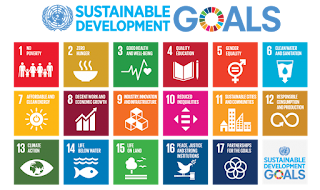What if the "New Normal" is Already Old News?
What if the only two-word combo you find more exhausting than “remote learning” is “new normal”?
You’re not alone. What if the quicker technology is allowing us to share ideas and information--looking at you, Twitter--the quicker it is also leading us to judgment and exhaustion? What if balance must be maintained, even in the Twitterverse?
Don’t get me wrong, Twitter and other social media platforms have been tremendous in facilitating educators around the world to connect; but let’s be honest, this technology has done little to move the needle on demonstrable changes to how we educate and learn.
But what if you don’t have to be an agent or a victim of short shifting your ideas or our future? What if, just because people are clamoring about the “new normal” doesn’t mean it must be new or normal to you?

What if, one of the best things of what’s next is it will be determined by you? Sure, whenever, however, and wherever you return, you may still have someone to answer to; heck, you might even have someone (or ones) telling you what to do and what kind of answers they expect to hear. But what if that doesn’t mean you have to follow the same processes to get you there?
What can you do now if you have neither the time nor desire to wait for someone to dictate to you how tomorrow will be?
Commit to making curiosity a cornerstone in all of the learning experiences you provide.
Whether your new normal is back to a familiar classroom, primarily digital, or some hybrid version in between, curiosity can be used to connect learners to what is being taught in order to command more of their interest and commitment to deeper learning and critical thinking, all while making what they’re learning and thinking about more relevant to the lives they are living and will be making.
Connect with others outside of your school and country to connect, collaborate, and learn with all of them on designing the future of learning.
When I asked the question, “what if we replaced history textbooks with Ben & Jerry’s?” I was serious. Today’s technology has made both traditional textbooks obsolete and non-traditional learning sources possible. What if you look to novel people, places, and even products for new pathways to learning and deeper discovery about that learning?
Collaborate with other educators and students to create the learning experiences of tomorrow.
If someone learns alone, how does the learning get passed around? How are you co-learning with your students? How are you creating learning experiences that feature you as a facilitator of learning instead of a teacher of information?
Whether you’re curious to hear what all the buzz regarding innovative approaches to education is about or looking for a community of collaborators innovating education, we hope you can find both with Princeton Hive. Princeton Hive isn’t just committed to creating the new normal, it’s using its technology to connect, challenge, and collaborate with learners and educators all over the world to provide opportunities for voices to co-create what normal learning looks like next.





Comments
Post a Comment